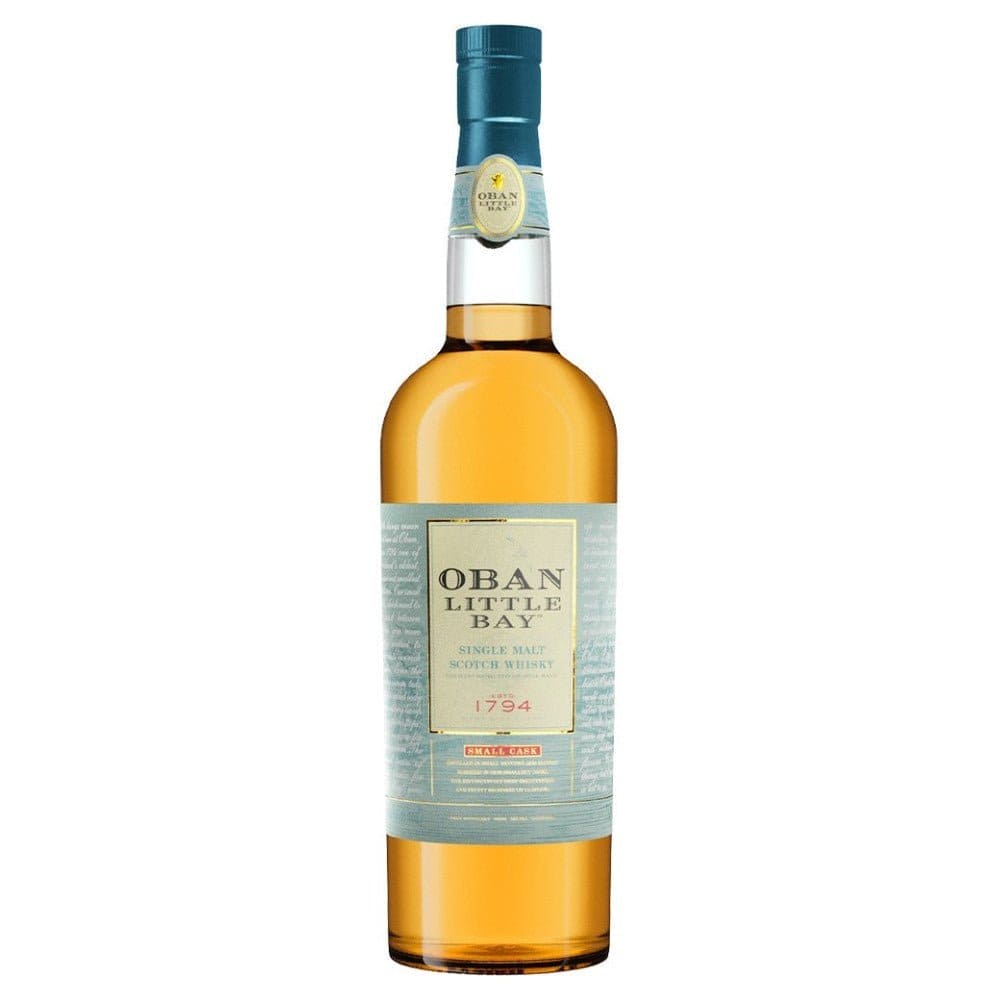
Oban Little Bay Single Malt Scotch Whiskey
Oban Little Bay Single Malt Scotch Whiskey
Experience the rich and complex character of Oban Little Bay Single Malt Scotch Whiskey, a distinguished spirit that promises to delight your senses. This exquisite whiskey is crafted with care, showcasing a harmonious blend of flavors that make every sip a memorable occasion.
Aromatic Profile
Indulge in a deep aroma that intertwines:
- Sea Salt - Evoking the coastal origins of Oban.
- Oak - Adding depth and complexity.
- Coffee - Infusing warmth and richness.
- Citrus - Brightening the aromatic experience.
Tasting Notes
The palate delivers an exquisite range of flavors:
- Baking Spices - Offering a comforting warmth.
- Brown Sugar - Adding a touch of sweetness.
- Christmas Cake - A festive note that lingers.
- Oak - Contributing a classic whiskey backbone.
Finish
The finish is a true testament to its craftsmanship, balanced and elegant, featuring:
- Slight Notes of Smoke - A subtle complexity that rounds out the experience.
- Fruit - Leaving a delightful aftertaste.
Award-Winning Quality
Recognized for its excellence, Oban Little Bay was awarded the 2020 SIP Awards Silver Medal, making it a must-try for whiskey aficionados.
Perfect Serving Suggestion
For the best experience, we recommend enjoying this single malt neat, allowing the full depth of its flavors to unfold in every sip.

Explore a World of Spirits and Liquor through our Comprehensive FAQ Section.
Discover a World of Spirits and Liquor in our Helpful FAQ Section.
Types of Spirits
- Whiskey: Made from fermented grain mash and aged in wooden casks.
- Vodka: Typically distilled from grains or potatoes and known for its clear, neutral flavor.
- Rum: Produced from sugarcane byproducts like molasses or sugarcane juice.
- Tequila: Made from the blue agave plant, primarily in the area surrounding Tequila, Mexico.
- Gin: Distilled with botanicals, primarily juniper berries, giving it a distinctive flavor.
Production Process
- Fermentation: The process where yeast converts sugars into alcohol.
- Distillation: Separating alcohol from the fermented mixture to increase its concentration.
- Aging: Storing spirits in barrels to develop flavors over time.
Tasting and Pairing
- Tasting Notes: Learn to identify different aromas, flavors, and textures.
- Food Pairings: Discover which spirits complement various dishes, enhancing the dining experience.
Cocktails and Mixology
- Classic Cocktails: Recipes and techniques for making popular drinks like the Old Fashioned, Martini, and Mojito.
- Mixology Tips: How to balance flavors and create your own cocktail recipes.
History and Culture
Origins: The historical background of different spirits.
Cultural Significance: How spirits are enjoyed and celebrated around the world.

